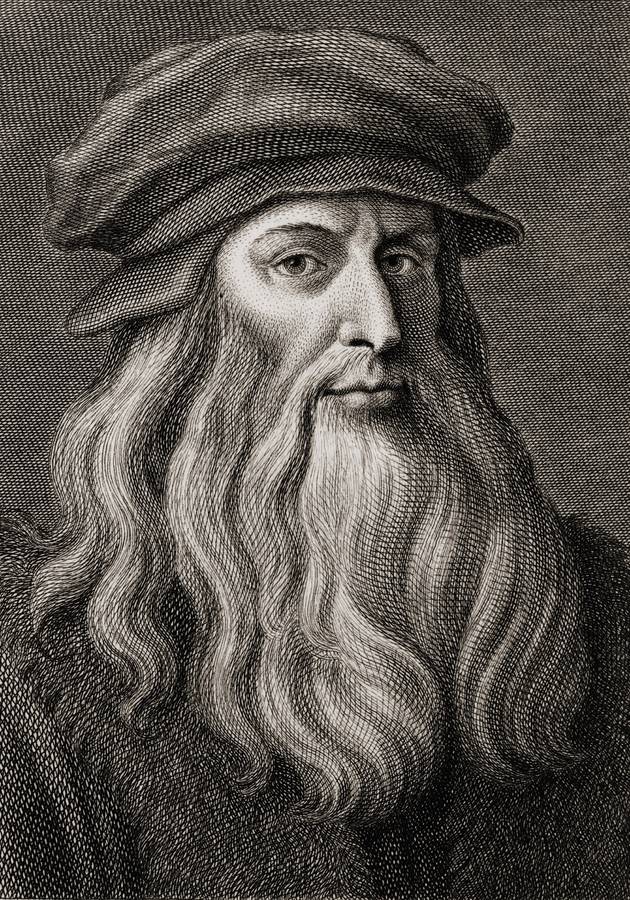Originally published in 1953, “The Worldly Philosophers” is an introduction to the lives and ideas of a handful of economic thinkers. From Adam Smith to John Maynard Keynes – these people profoundly transformed the world we live in.
So, get ready to discover how, as we take you on a journey through the history-shaping ideas of some of the most influential thinkers of our past!
The wonderful world of Adam Smith
The year of 1776 was a revolutionary year. On May 4, industrialist John Wilkinson presented Scottish inventor James Watt with his precision-made cylinder – an event that led to the development of the Watt steam machine and the beginning of the Industrial Revolution. On July 2, 1776, the Continental Congress declared Thirteen Colonies free and independent states. And just two months into the year, Scottish moral philosopher Adam Smith published his magnum opus, the 900-page-long “The Wealth of the Nations,” arguably the most important economic book ever written.
In it, Smith “displayed the first true tableau of modern society,” revealing to a new generation of people “how the tasks they did fit into the whole of society,” and why “society as a whole was proceeding at a majestic pace toward a distant but clearly visible goal.” In simpler words, borrowing a phrase from the French physiocrats, Smith argued that the best way to organize the economy was to leave it alone. “It is not from the benevolence of the butcher, the brewer, or the baker that we expect our dinner,” he famously noted, “but from our regard to their self-interest.”
In a centrally regulated economy, this profit motive, this drive of individual self-interest, would inevitably lead to exploitation coming from the people in power. However, in a free environment of similarly motivated individuals – such as the world was becoming with the technological advancements of Adam Smith’s day – it ought to lead to competition.
Competition, in turn, will result in “the provision of those goods that society wants, in the quantities that society desires, and at the prices, society is prepared to pay.” Why? Because the more money a capitalist has, the more machinery a capitalist can buy. More machines mean more demand for workmen, and this leads to higher wages. This doesn’t eat away the profits – “the source of accumulation” – because the higher the wages are for the laborers, the more laborers there should be.
Thus, if left on its own, because of a few simple mechanisms, the free market should drive humans away from the “avarice of private greed” and in the direction of a “promised reward” – a society of free, content, and well-to-do individuals.
The gloomy presentiments of Thomas Malthus and David Ricardo
Adam Smith wasn’t a revolutionary: in fact, his vision of the wonderful, self-regulating market was relatively conservative and commonsensical. Even so, “The Wealth of Nations” transformed economic thought in myriad ways: almost every economist who came after Smith was immensely influenced by his ideas.
Almost immediately, he became the founder of a school of economic thought: classical economics. Its main thinkers were a wealthy stockbroker and a clergyman: David Ricardo and Rev. Thomas Robert Malthus. Neither of the two was as optimistic as Adam Smith in terms of capitalism’s self-regulating capacities and long-term sustainability.
A Sephardic Jew of Portuguese Dutch origin, David Ricardo closely observed the rivalry between the preindustrial aristocratic landowners and the emerging class of industrial capitalists.
The former constituted the majority of the British Parliament and passed laws from which only themselves profited, making Ricardo realize that free-trade capitalism could never work – contrary to Smith’s expectations – because it is not exactly a fair game.
Namely, while some individuals – such as those who have land or political power – will always be in a more advantageous position than the rest, others – such as workers – will never be knowledgeable enough to invest their money into raising their living standards, and will instead produce more children who will, thus, increase the labor supply and keep their wages low forever.
It was this last thing – Ricardo’s doubts over Adam Smith’s law of population – that interested Malthus the most. In his 1798 book, “An Essay on the Principle of Population,” he suggested that while technological advancements would inevitably lead to an increase of essential resources such as food, in the long run, the improved standard of living would enable population growth – which, in turn, would bring back the per capita supply of resources to its original level.
That’s the Malthusian trap, concisely summarized by Malthus thus: “the power of population is indefinitely greater than the power in the earth to produce subsistence for man.” In other words, not only isn’t capitalism self-perfecting, but the progress of our society depends on catastrophes, such as famines and wars, because they have been historically the only things that stopped the lower classes from growing in numbers.
Thanks to ideas such as this, Malthus and Ricardo changed the viewpoint of their age from optimism to pessimism. Just like Smith, they believed that progress is controlled by some forces beyond our control; unlike Smith, however, they thought that those forces inevitably lead to “a gloomy state where the worker just barely subsisted, where the capitalist was cheated of his efforts, and where the landlord gloated.”
The dreams of the utopian socialists
A common element in the economic ideas of Smith, Ricardo, and Malthus – in addition to the structure of the capitalist economy – is “the vision of the working class as essentially passive.” In other words, not one of the classical economists expected anything from the laboring poor: to them, workers were just primitive cogs in a complex apparatus operated by capitalist innovators.
Robert Owen, one of the foremost utopian dreamers of the 19th century, was a wealthy Welsh businessman who didn’t subscribe to this idea. Even if he thought it was true, he didn’t think it was just. So, he spent most of his fortunes to improve the lives of his employees: he is, in fact, one of the people you should be thankful to for trade unions and your relatively short working hours.
Owen believed that, for all its worth, classical economics is just too mechanical, while people are not: because of our free will, he argued, we can organize our society in any way we want to. However, his attempt to prove this – a futuristic “mentally independent” commune called New Harmony in Posey County, Indiana – failed spectacularly in less than three years.
Simultaneously with Owen’s communalism, an unconventional French thinker by the name of Charles Fourier inspired the cooperative movement in France. Fourier – an early champion of children’s and women’s rights (and the man who coined the word “feminism”) – believed that any society built on selfishness and greed could never be as efficacious as one founded on concern and cooperation.
He advocated for a world of defined minimum wages in which people would be able to work whatever they wanted to and in which the more enjoyable the work was, the less it would be paid. And he envisioned this world to the tiniest detail, suggesting (quite impractically and eccentrically) that society should be organized into phalanxes, which would consist of a kind of grand hotel arrangements. You could pick the class based on your wage, and your wage based on your desires.
Of course, this was all too theoretical – and downright foolish – to ever work. Yet, the Fourierist idea took some hold in the United States and manifested in the form of over 40 different utopian communities. None of them managed to survive for too long. But, ultimately, they inspired thinkers who would actually make a lasting change.
The inexorable system of Karl Marx
Utopian socialists such as Owen and Fourier believed that humans are rational and sensible beings, and thus they are capable enough to create a better society for themselves through agreements – without any kind of struggle or social revolution. Karl Marx begged to differ: in his opinion, the inner division of our society – as pointed out by Ricardo – was just too big to allow such an outcome.
In 1848, Marx published “The Communist Manifesto,” which, though merely a 50-page pamphlet, is undoubtedly one of the most influential works in the history of mankind (for better or for worse). Marx’s most important book, however – and the one that elucidates his views best – is the enormous three-volume “Das Kapital,” one of the shrewdest analyses of capitalist societies ever written. If in “The Communist Manifesto,” he furiously suggested that “the history of all hitherto existing society is the history of class struggles,” in “Das Kapital” he tried to elucidate the mechanism of this class struggle with cold and unforgiving logic.
In short, in any capitalist society, the working class has no say in what the ruling class decides to produce, even though they are the ones who produce it for them. Moreover, the goal of the ruling class is to maximize its profits and to protect the status quo – which is certainly not in the interest of the workers who’d prefer to earn more money while working fewer hours. This conflict of interest, Marx believed, led to all overthrows in history, which were nothing but a change in power, the subordinate class becoming a ruling one and vice versa. The only way out of this incessant class struggle was the creation of a classless society via communal ownership of private property.
Firmly believing that society progresses in predictable ways, about a century after Smith, Marx proposed a different set of economic laws that, according to him, “described how capitalism proceeded slowly, unwillingly, but ineluctably to its doom.” Marx agreed with Smith that, with the expansion of the economy, the profit margins fail, and things improved with higher wages, but he didn’t believe the process regulates itself in the long run.
Instead, he proposed that with the fall of profits, business owners turn to innovation and invention to resuscitate the original turnovers. Because of this, economic progress in capitalism is not linear, but a cycle of depressions and booms – from which only the minority benefits. At some point, the majority – the working class – will become conscious of its power and try to take back the means of production through a violent proletarian revolution. This event should spell the end of capitalism.
The heresies of John Maynard Keynes
As Heilbroner writes, even though far from infallible, “the Marxist model of how capitalism worked was extraordinarily prophetic.” Capitalism did go through crisis after crisis for the entire second half of the 19th century, and then, at the end of the first quarter of the 20th, it collapsed worldwide.
However – and this is where Marx’s logic was betrayed by his one-sided view of history and human societies – different nations responded differently to financial disasters. In some countries, as Marx expected, capitalism did actually end: in Italy and Germany, it drifted into fascism, while in Russia and Eastern Europe it was displaced by socialism. But in the most advanced capitalist countries in the West (contrary to Marx’s predictions), people did everything they could to keep capitalism afloat. And thanks to British aesthete John Maynard Keynes, governments around the world knew exactly what to do.
You see, Keynes realized that the only way for a depressed economy to prosper is for accumulated savings to be put to use. Unfortunately – and for obvious reasons – this is the last thing people do when the economy doesn’t work. Consequently, if not treated from the outside, depression can remain permanent. So, Keynes proposed an interesting way out: heavy government investment. This, in his opinion, should stimulate the economy and assure a high level of economic movement.
We still don’t know whether this solution works. However, it has been employed to this day by numerous governments. While some economists claim that it yields results, others believe that it causes even more severe crises in the long run. Either way, Keynes is often deemed as “the savior of capitalism.” And, perhaps, in the absence of his suggestions for managed capitalism, there might have been more radical responses to the Crash of 1929 across the globe – the United States not excluded. And apparently, no radical responses were necessary: we all survived.
Final Notes
Described as “a brilliant achievement” by John Kenneth Galbraith and as “a living classic” by Leonard Sink, “The Worldly Philosophers” is, arguably, the best introduction to the lives and ideas of the most important economists ever written.
It is not only comprehensive and clearly written, but it is also inspiring and eye-opening. Highly recommended.
12min Tip
The drive for wealth may be a “worldly” activity, but the people who seek to understand it seems to have shaped human history more profoundly than anyone else. Read them. Some of their ideas are probably already yours as well.




























